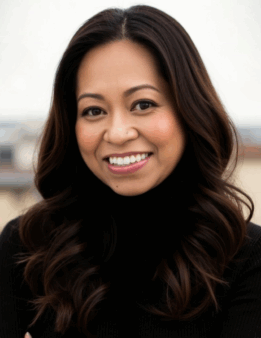CBIST Spotlight: Sherry Perucho
Categories: ACBIS Insider
 Sherry Perucho, DHA, MA, CCC-SLP, CBIST, is a licensed speech-language pathologist with over 20 years of clinical experience in neuro rehabilitation. She earned her Doctorate in Healthcare Administration from Virginia University of Lynchburg, her MA in Speech-Language Pathology from San Jose State University in California, and her BS in Speech Pathology from the University of the Philippines, Manila. Sherry has worked in acute, post-acute, and outpatient settings, with a focus on neuro and neurodegenerative conditions.
Sherry Perucho, DHA, MA, CCC-SLP, CBIST, is a licensed speech-language pathologist with over 20 years of clinical experience in neuro rehabilitation. She earned her Doctorate in Healthcare Administration from Virginia University of Lynchburg, her MA in Speech-Language Pathology from San Jose State University in California, and her BS in Speech Pathology from the University of the Philippines, Manila. Sherry has worked in acute, post-acute, and outpatient settings, with a focus on neuro and neurodegenerative conditions.
What is your current position and credentials?
I am currently serving as the Clinical Manager for the Nevada Community Enrichment Program (NCEP), a comprehensive outpatient neuro rehabilitation center in Las Vegas. My credentials include a Doctorate in Healthcare Administration (DHA), a Master’s in Speech-Language Pathology, CCC-SLP, and Certified Brain Injury Specialist Trainer (CBIST).
Why have you chosen a career in brain injury? Why are you passionate about brain injury?
I chose a career in brain injury rehabilitation because of the resilience and determination of the people we serve, and the meaningful impact we can make in their recovery journey. I also have a personal connection to this field, having had family members who experienced CVAs (cerebrovascular accidents) or TBIs, which gave me firsthand insight into the challenges faced by individuals and caregivers. That experience deepened my commitment to helping others navigate life after brain injury with dignity, hope, and skilled support.
How has the field of brain injury changed in your time working?
I’ve seen the field move toward more person-centered and interdisciplinary approaches. There’s greater recognition of the long-term, invisible impacts of brain injury, including cognitive, behavioral, and emotional challenges.
Why is having a CBIST important to you? How is it helpful in your daily work?
Holding a CBIST credential allows me to stay current on best practices and advancements in brain injury care while also providing opportunities to mentor and train other professionals. This is so important to me because it reinforces a commitment to specialized, informed, and compassionate care in every aspect of my daily work.
What are some challenges you have faced working with individuals with brain injury?
Some of the challenges include managing the complexities of behavioral changes, emotional dysregulation, and cognitive impairments, while supporting families coping with sudden life changes. Limited community resources and navigating long-term care also remain to be ongoing challenges, especially here in Nevada.
How can clinicians best support individuals, caregivers, and family members?
Clinicians can best support individuals and families by listening, providing clear and consistent education, and offering resources that address both clinical, social, and emotional needs. Creating a collaborative care environment and connecting caregivers to community and peer support networks is so important.
What do you see as the future of the brain injury field/research/education?
I see the future of brain injury care moving toward advances in neuroplasticity-driven therapies, technology-assisted rehabilitation, and expanded research into long-term functional outcomes. There’s growing emphasis on developing more specialized training programs for clinicians and direct care providers, and a continued focus on improving community-based services and reintegration strategies for individuals living with brain injury.
Are you involved with BIAA or ACBIS in other ways (for instance, as a fundraiser or Board member)?
Yes. I teach Brain Injury Fundamentals classes, and in 2023 and 2024, I trained over 100 direct support providers. Last year, I also trained seven members of our clinical team to obtain their CBIS certification and supported a doctoral graduate intern in achieving their Provisional CBIS (PCBIS). I’ve attended and presented at BIAA Leadership Conferences alongside my Director, Julie Peterson, and remain committed to advancing professional education and advocacy within the brain injury community. I’m truly grateful to BIAA and ACBIS for their ongoing work, not only in providing invaluable education and certification opportunities, but also for their commitment to advancing brain injury research and advocacy. The resources, research updates, and conferences they offer have been instrumental in strengthening our clinical practice and improving the care we deliver to the brain injury community.
